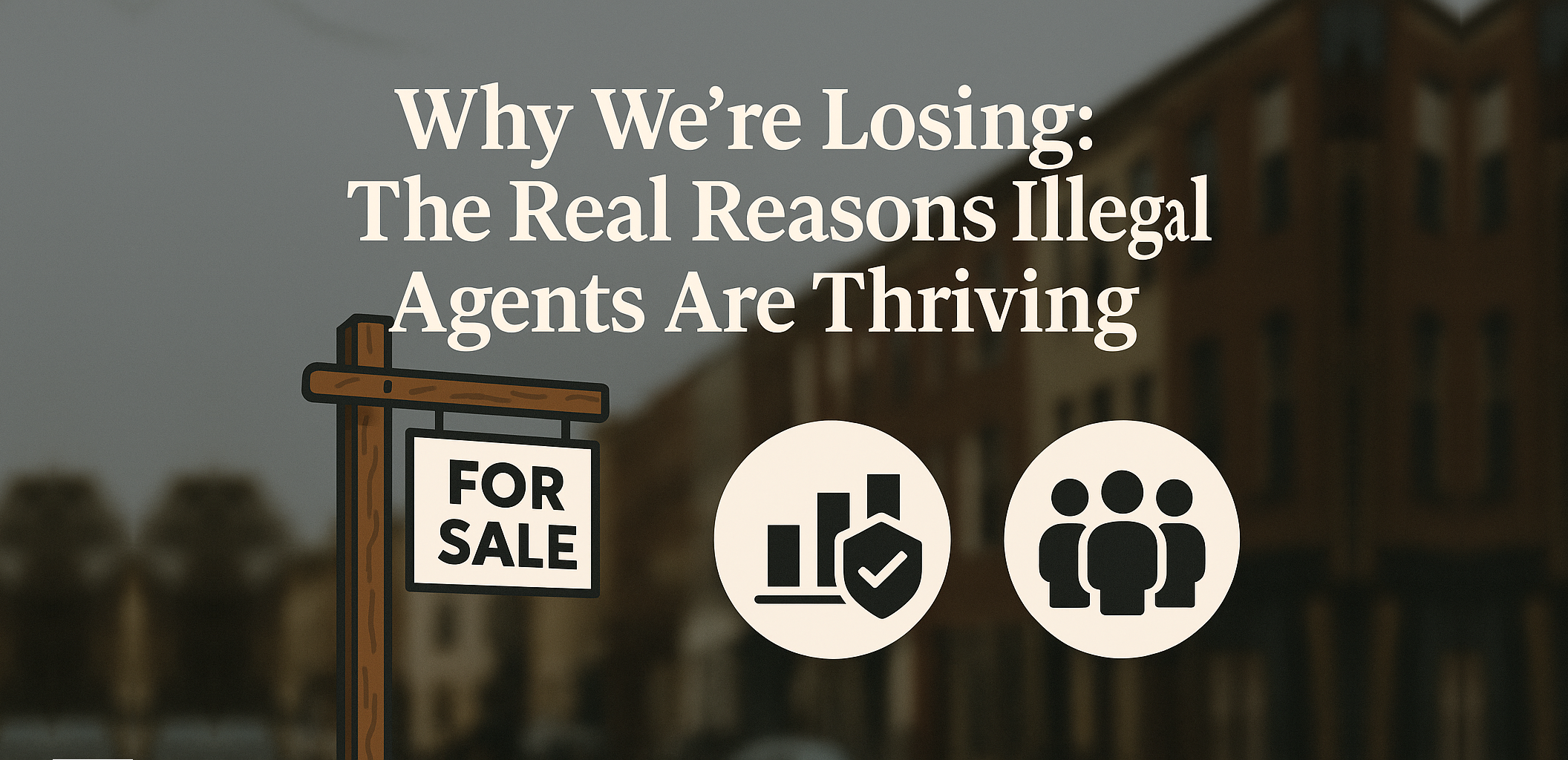Why We're Losing: The Real Reasons Illegal Agents Are Thriving

Malaysia’s real estate industry is one of contrasts. On one hand, licensed negotiators and agencies are trained, regulated, and bound by law. On the other, a vast shadow network of illegal agents thrives openly. Despite decades of enforcement and awareness campaigns, the problem persists—and in some areas, it’s getting worse.
The uncomfortable truth is this: illegal agents are not thriving because they’re smarter or better. They’re thriving because the system—our system—allows them to. Until we confront the root causes, the playing field will remain unfair, and licensed professionals will continue fighting uphill battles.
Reason 1: The Market Rewards Speed and Convenience
Illegal agents win by moving fast and appearing everywhere. They plaster phone numbers on traffic lights and trees—the pinnacle of “grassroots marketing”—then promise same-day viewings, instant paperwork, and “don’t worry, can settle” deposits. Platforms rarely verify licensing, and many owners just want results. To the unsuspecting client, this looks like efficiency. To the professional, it’s malpractice dressed up as hustle. When enforcement is invisible, speed beats safety every time.
Reason 2: Weak Awareness Among the Public
Most clients don’t know the difference between a licensed and unlicensed agent. To them, an agent is anyone who shows a property. Few understand what a REN tag means or why deposits must be held in a client account. If the public doesn’t know they’re at risk, they won’t demand protection—and licensed agents struggle to justify professional fees when competitors “do the same job” for less.
Reason 3: Enforcement Gaps and Low Penalties
BOVAEP and the Commercial Crime Investigation Department (CCID) have increased enforcement, but illegal activity still far outnumbers capacity. Even when offenders are caught, penalties are often too light to deter repeats. The belief that “nothing will happen” keeps the shadow market alive.
Reason 4: Complicity Within the Ecosystem
Illegal agents rarely operate alone. They are enabled by others who benefit—paperwork pushed through without REN checks, loans advanced for quick commissions, units moved without regard for valid appointments. This network shields illegality while licensed professionals shoulder the cost of compliance.
Reason 5: Agencies Failing to Differentiate Themselves
Too many licensed agencies compete on the same terms as illegal operators—viewings and price alone. When professionalism is invisible, clients can’t see the difference and default to the cheapest option. If protections aren’t made plain—regulated client accounts, valid appointments, enforceable contracts, professional indemnity, BOVAEP oversight—clients assume all “agents” are the same.
Reason 6: Hiding Behind “Property Shields”
A growing number of illegal operators avoid the word “agent” entirely. They hide behind adjacent labels—insurance, renovation, financial products, advertising, “project marketing consultancy.” Leads are generated under non-agency banners; fees are disguised as “marketing” or “service” charges. Consumers are confused, enforcement is blurred, and the protections they should have never materialise.
How We Win: Alliance and a Higher Standard
The answer isn’t more noise or more prescriptions. It’s alignment. Licensed professionals must form alliances and, collectively, champion a new standard for the industry built on three pillars:
- Making trust visible (e.g., showcasing client accounts, insurance, REN tags).
- Setting expectations that shortcuts can't meet (e.g., professional documentation, ethical oversight).
- Restoring the tangible value of a license for the consumer.
Every alliance can express this standard in its own way. The point is unity on principle, not uniformity in procedure.
Conclusion: Build What They Can’t Imitate
Illegal agents thrive because clients don’t see the danger, systems tolerate it, and professionals don’t stand apart clearly enough. We change that by standing together and raising the bar so high that shortcuts stop looking like value and start looking like risk. Form alliances. Agree on a visible, shared standard. Make professionalism unmistakable. And leave the traffic-light signboards where they belong: as a punchline, not a business model.











































































































